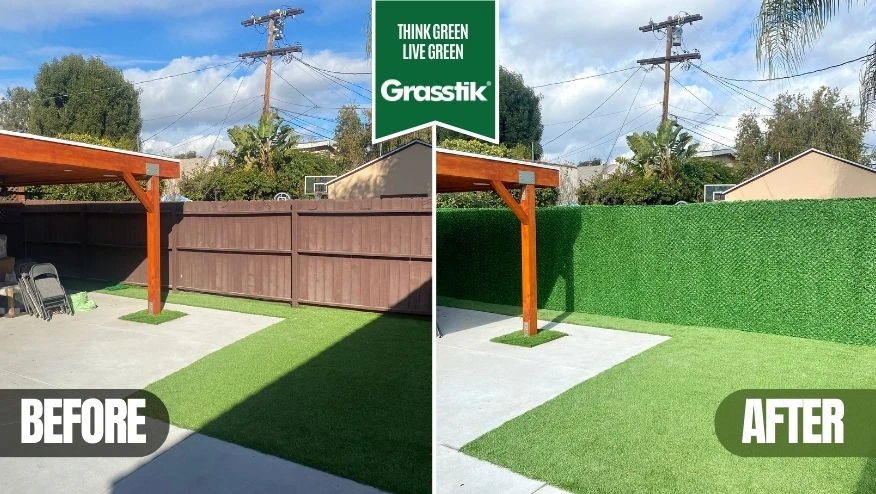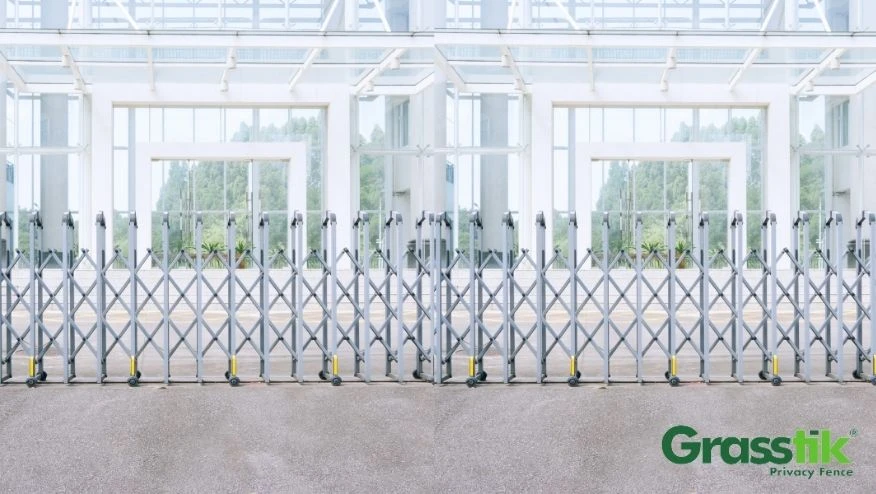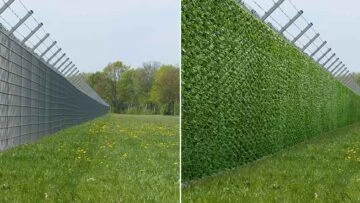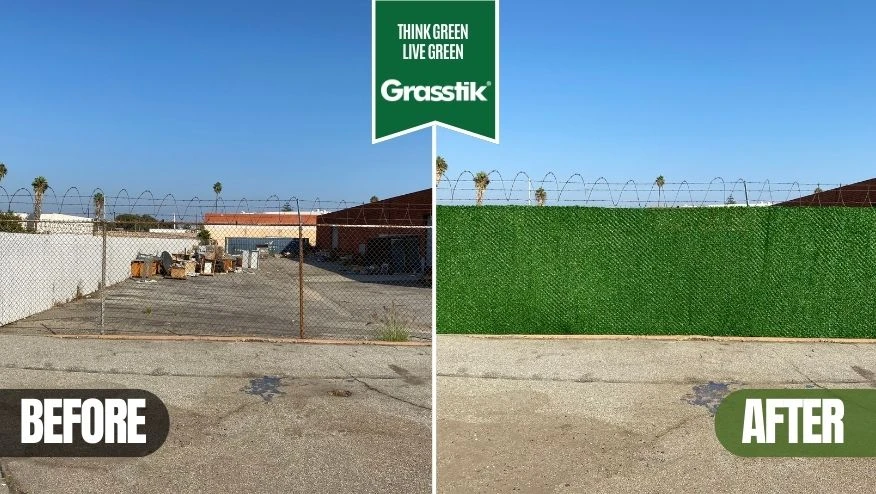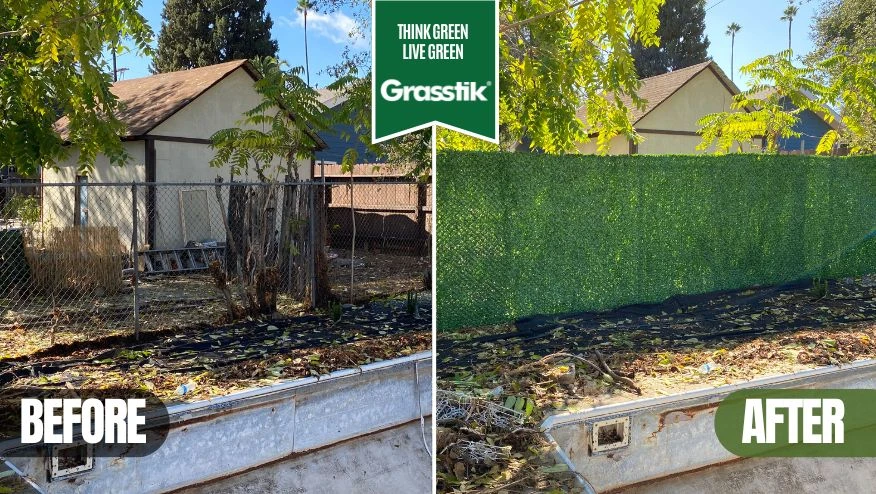
When it comes to choosing the right grass fence, the options could be overwhelming. Two popular choices that often come up in discussions are grass fence mesh wire and galvanized mesh wire.
While both provide services like enclosure and security, they are pretty different in their construction, appearance, durability, and application.
Understanding the difference between grass fence mesh wire and galvanized mesh wire is crucial for choosing the right option for your needs. In this article, we look deep into the differences that exist between grass fence mesh wire and galvanized mesh wire to help you decide which fits your project perfectly.
What is grass fence mesh wire?
Grass fence mesh wire is a new generation of fencing material that combines the natural looks and features of strength and durability of classic mesh wire. Among the greatest features of this new material is its effectiveness in uplifting the visual qualities of a space.
But what exactly is grass fence mesh wire, and why do more and more people turn to it in residential and commercial projects? Let's explore some key features and flexible uses that make it the all-time best in the modern fields of landscaping and fencing.
Advantages of Grass Fence Mesh Wire
The advantages resulting from grass fence mesh wire make it quite an attractive product in many situations. In aesthetic enhancement, the ecological benefits, besides being durable for long periods, make them one of the effective options.
Aesthetic appeal
Grass fence mesh wire perfectly fits into the landscape and creates an outstanding look instead of the eyesore of traditional fence models. Because of the look of grass around it in gardens, lawns, verandas, and patios, wherever this wire is matched, it seems very realistic. This aesthetic match strengthens the general atmosphere of your property, helping it relate to its surroundings.
For those looking for a more convenient installation, grass fence panels are an excellent choice. They offer the same visual appeal while being easy to set up and maintain.
First, it is necessary to note that it uses sustainable and ecologically safe materials. Considering that the synthetic grass used in such a fence is made from reusable or long-lasting materials, it reduces replacement costs from weathering and minimizes waste. In addition, the mesh wire backing is usually galvanized or coated to last longer, thus reducing its environmental footprint because no new raw materials are required.
Durability and privacy considerations
Artificial grass is made of durable material to resist sunlight, rain, and wind without losing its appearance or performance. Furthermore, the mesh wire backing will not rust or corrode; it provides an enduring fence that does not fall apart quickly.
The grass fence mesh wire works effectively for landscape privacy concerns. The green, dense surface of the fence forms a visual barrier that obscures the view, hence making the place private; it is quite suitable where seclusion is intended.
But if you're seeking a flexible option to cover an old fence, a grass fence roll is an excellent choice. It offers a natural look, requires almost no maintenance, and features fast, DIY installation
What is Galvanized Mesh?
Galvanized mesh wire is another type of fencing material made with the use of steel wire covered with a certain layer of zinc to avoid corrosion and rust. It incorporates the actual process of galvanizing: dipping the wire in molten zinc, thus causing protection that actually augments the strength and service life of the wire. Such types of mesh wires are appreciated for their strength, resistance to surrounding exterior factors, and low maintenance intensity.
Advantages of Galvanized Mesh Wire
Galvanized mesh wire has a few key advantages that make it well-suited for use in fencing and many other fields. Durability, resistance to corrosion, and flexibility provide the capability for reliable performance under the widest range of conditions possible. Let’s discover what benefits galvanized mesh wire provides that could sustain effectiveness and longevity.
Corrosion resistance
The galvanization process involves submerging the wire in molten zinc pools to create a strongly adherent layer, preventing moisture and corrosive elements from reaching the underlying steel. This zinc coating acts as a barrier to protect not only the steel but also to sacrifice itself over time, even when the surface is scratched or otherwise damaged, to ensure the intactness of the remaining steel.
Due to galvanizing, galvanized mesh wire has a longer life, especially for outdoor and harsh environments. It is highly effective across a wide range of climates, from very humid and coastal regions where moisture and salt accelerate corrosion to providing reliable protection for the zinc coating.
Strength and durability
Galvanized mesh wire is distinguished by its impressive load-bearing capacities and provides multiple application possibilities. The solid core is made of high-quality steel that bears tremendous weight and pressure, ensuring the mesh does not sag or succumb to such weights.
Strong material provides real physical resistance. The durability of steel, coupled with the protection obtained from being coated with zinc, allows the mesh to stay strong when receiving impacts, abrasions, or extreme environmental conditions.
Versatility in different environments
Industrially, galvanized mesh wire is used for the fixation of machinery, which provides barriers and sometimes reinforced concrete structures. This is because its strength and resilience are sufficient to operate safely in the industrious and dangerous environments of an industry.
Other peculiarities of galvanized mesh wire relate to its ability to perform well in the most extreme conditions. Be it extremely hot or cold, be it super moist, and even the salty sea air, the galvanized coating protects the steel from rust and corrosion.
Key Differences Between Grass Fence Mesh Wire and Galvanized Mesh Wire
Knowing the differences between grass fence mesh wire and galvanized mesh wire is essential to making a better decision about which of the two will best suit your needs.
Here, we’ll explore the key differences between these two types of mesh wire to help you make an informed choice.
Material Composition
Materials Used:
Grass Fence Mesh Wire: This is an artificial type of grass fiber instructional material usually attached to a metal mesh backing, normally galvanized steel. Their combination offers a natural look with structural support.
Galvanized Mesh Wire: This consists of wire made up of steel coated with zinc by galvanization. Galvanizing makes it more resistant to corrosion and lengthens its useful lifespan.
Performance and characteristics:
Grass Fence Mesh Wire: It is a good-looking material that is natural in appearance, blending well with the average outdoor landscape. Ideal for residential use and light commercial applications.
Grass Galvanized Mesh Wire: Galvanized mesh wire is generally attributed to strength and durability for a long period because of its core steel with zinc coating. It works wonderfully in severe conditions, proving adept at bearing the environment.
Aesthetic Differences
Grass Fence Mesh Wire: green, natural look, similar to real grass, adding beauty to gardens, lawns, and patios. In spaces where grass happens not to thrive easily, it adds charm with its rich, bumpy feeling.
Galvanized Mesh Wire: It has a shiny, silver metal finish that gives it a sleek look. Although modern and neat, the natural vibe of grass fence mesh wire is not available.
Durability and Maintenance
Wire Mesh for Grass Fence: It lasts between 5-10 years. It entails periodic cleaning and wear checks are more frequently required when exposed to harsh weather conditions.
Galvanized Wire Mesh: The lifespan is 15-20 years and sometimes even longer. It requires very little maintenance since it is quite robust against corrosion. Only cleaning is required once in a while.
Cost Comparison
Grass Fence Mesh Wire: Prices depend on the quality of artificial grass, the gauge of steel, and other installation complications.
Galvanized Mesh Wire: Their pricing depends on the steel gauge, the thickness of the zinc coating, and market conditions.
Generally speaking, it is cheaper since it is durable and doesn't require much maintenance.
Factors to Consider When Choosing Between a Grass Fence and Galvanized Mesh Wire
Purpose and Functionality:
Clearly define the use of the fence. Grass fence mesh wire contributes to the aesthetic appeal and blends well into nature; hence, it is suitable for residential and decorative purposes. Galvanized mesh wire is tough and durable and is used for industrial and security purposes.
Environmental Considerations:
Consider the impact on the environment. Grass fence mesh wire is prepared from synthetic material, and these might affect the environment in one way or another. Galvanized mesh wire has, besides its metallic core, a coating of zinc that ensures longevity and fewer replacements, but it is metal-based nonetheless.
Budget and Investment:
Grass fence mesh wire is more expensive up front, with moderate costs in the longer term; galvanized generally has lower upfront costs and is even lower in the long term due to its durability.
Local Regulations:
Follow all local laws and regulations. There may be certain restrictions on the height and/or appearance of grass fence mesh wire, and galvanized mesh wire must often meet requirements for safety and functionality in industrial or commercial applications.

